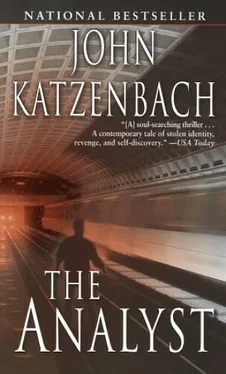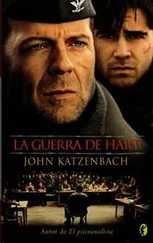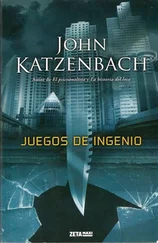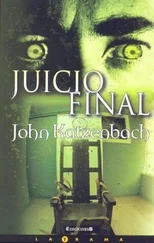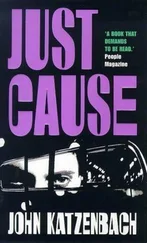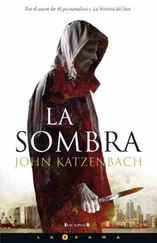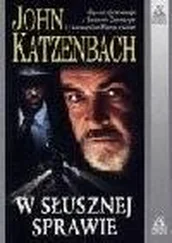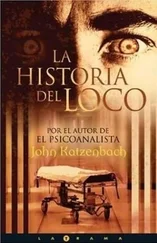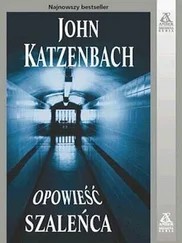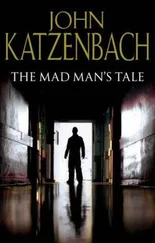A coldness swept over him as he made a decision. Who were you, Claire Tyson?
And where are your children today?
There are many kinds of freedom, Ricky thought. Rumplestiltskin had killed him to acquire one sort. Now he would find his own.
This is what Ricky knew: Twenty years earlier a woman died in New York City and her three children were turned over to the state for adoption. Because of that fact alone, he’d been forced to kill himself.
Ricky’s first computer sorties, chasing Claire Tyson’s name, had come up curiously empty. It was as if her death had erased her from the records he could access electronically as surely as it had erased her from the earth. Even with the copy of the twenty-year-old death certificate, he was initially stymied. The family tree programs that had displayed his own stack of relatives so rapidly, proved to be significantly less effective at tracing her. She seemed to stem from folks with far less status, and this lack of identity seemed to diminish her presence in the world. He was a bit surprised at the lack of information. The Find Your Missing Relatives! programs promised to be able to trace virtually anyone, and her apparent disappearance from any record rapidly obtained was unsettling.
But his first efforts weren’t complete wastes. One of the things that he’d managed to learn in the months since his final vacation had begun, was to think considerably more tangentially. As a psychoanalyst, he’d learned the art of following symbols and tracing them into realities. Now, he was using similar skills, but in a far more concrete manner. When Claire Tyson’s name didn’t produce success, he began to search for other avenues. A computer sortie into Manhattan real estate records gained him the current ownership of the building where she had lived. Another inquiry led him to names and addresses in the city bureaucracy where she would have applied for welfare, food stamps, and aid to families with dependent children. The trick, Ricky thought, was to imagine Claire Tyson’s life twenty years earlier, and then narrow that down, so that he could understand all the forces that were in play at that time. Somewhere in that portrait would be a link to the man who’d stalked him.
He also searched electronic telephone books for the north of Florida. That had been where she had come from, and Ricky suspected that if she had any living relatives-other than Rumplestiltskin-that would be where they were located. The death certificate listed an address for her next of kin, but when he cross-checked the address against the name, he determined someone different was living at that location. There were a number of Tysons in the area outside of Pensacola and it seemed a daunting task to try to ascertain who was who, until Ricky remembered his own scrawled notes from his few sessions with the woman. She was a high school graduate, he recalled, with two years of college before dropping out to follow a sailor stationed at the naval base, the father of her three children.
Ricky printed out the names of potential relatives and the addresses of every high school in the area.
It seemed to him, as he stared at the words on the sheets of computer paper, that what he was doing was what he should have done so many years before: try to come to know and understand a young woman.
He thought that the two worlds couldn’t have been much different. Pensacola, Florida, is in the Bible Belt. Jesus-thumping, raised voices, praise the Lord and go to church on Sunday and any other day when His presence was needed. New York-well, Ricky thought, the city probably stood for pretty much everything anyone who grew up in Pensacola knew to be wrong and evil. It was an unsettling combination, he thought. But he was relatively certain of one thing: He was far more likely to find Rumplestiltskin in the city than in the countryside of North Florida. But he didn’t think that the man had had no impact down South.
Ricky decided to start there.
Using the skills he’d already mastered, he ordered a fake Florida driver’s license and retired military identification card from one of the novelty identification outlets on the Internet. The documents were to be sent to Frederick Lazarus’s Mailboxes Etc. box number. But the name on the identification was Rick Tyson.
People were likely to want to help out a long-lost relative, he thought, who innocently appeared to be trying to trace his roots. As a further hedge, he made up a fictional cancer treatment center, and on invented stationery wrote a “to whom it may concern” letter, explaining that Mr. Tyson’s child was a Hodgkin’s disease patient in need of a bone marrow match, and any assistance in tracing various family members, whose marrow DNA carried an increased chance of match success, would be appreciated and possibly even lifesaving.
This letter was wholly cynical, Ricky thought to himself.
But it would likely open some doors he needed to open.
He made himself an airplane reservation, made arrangements with his landladies and with his boss at the university maintenance department, switching around some workdays and hours to give himself a block of time, then he stopped in at the secondhand clothing store and purchased himself a simple, extremely cheap summer-weight black suit. More or less, he thought to himself, what a mortician would wear, which, he believed, was appropriate for his circumstances. Late in the evening of the day before he was to depart, wearing his janitor’s shirt and work pants, he let himself into the theater department at the university. One of his passkeys opened the storage area where costumes for various college productions were kept. It did not take him long to find what he needed.
There was a heavy dampness hidden like a veiled threat in the heat of the Gulf Coast weather. His first breaths of air, as he walked from the airconditioned chill of the airport lobby out to the rental car waiting area, seemed to hold an oily, oppressive, slick warmth far removed from even the hottest days up on Cape Cod, or even in New York City during an August heat spell. It was almost as if the air had substance, that it carried something invisible, yet questionable. Disease, he thought at first. But then, he guessed that was too harsh a thought.
His plan was simple: He was going to check into a cheap motel, then go to the address that was written on Claire Tyson’s death certificate. He would knock on some doors, ask around, see if anyone currently at that location knew of her family’s whereabouts. Then he would fan out to the high schools closest to the address. It wasn’t much of a plan, he thought, but it had a journalistic sturdiness about it: knock on doors and see who had something to say.
Ricky found a Motel 6 located on a wide boulevard that seemed to be dedicated to little except strip mall after strip mall, fast-food restaurants of every imaginable chain, and discount shopping outlets. It was a street of sun-washed cement, glowing in the undeniable sun of the Gulf. An occasional palm or shrub-brush landscaping seemed washed up against the shore of cheap commerce like flotsam and jetsam after a storm. He could taste the ocean nearby, the scent was in the air, but the vista was one of development, almost endless, like a repeating decimal of two-story buildings and garish signs.
He checked in under the name Frederick Lazarus, and paid cash for a three-day stay. He told the clerk he was a salesman, not that the man was paying all that much attention. After surveying the modest room, Ricky left his bag and walked through the parking lot to a convenience store gas station. There, he was able to purchase a detailed street map for the entire Pensacola area.
The tract housing near the sprawling naval base had a certain uniformity to it that Ricky thought might be similar to one of the first circles of Hell. Rows of cinder-block framed houses with tiny splotches of green grass steaming beneath the sun and ubiquitous sprinklers dashing the color with water. It was a short-hair-and-page-boy-cut area; it seemed to Ricky, driving through, that each block had a quality to it that seemed to define the aspirations of the inhabitants; the blocks that were well mowed and modestly manicured, with houses freshly painted so that they glistened with an otherworldly bright white beneath the Gulf sun seemed to speak of hope and possibility. The cars that rested in the driveways were clean, polished, shining, and new. There were swing sets and plastic toys on some of the lawns, and despite the midmorning heat, some children were at play beneath the watchful gaze of parents. But the lines of demarcation were clear: A few blocks in a different direction and the houses gained a worn, more used appearance. Run-down, flaking paint, and rain gutters that were stained with use. Streaks of brown dirt, chain-link fences, a car or two up on cinder blocks, wheels removed, rusting. Fewer voices raised in play, trash cans filled past their brims with bottles. Blocks of limited dreams, he thought.
Читать дальше
